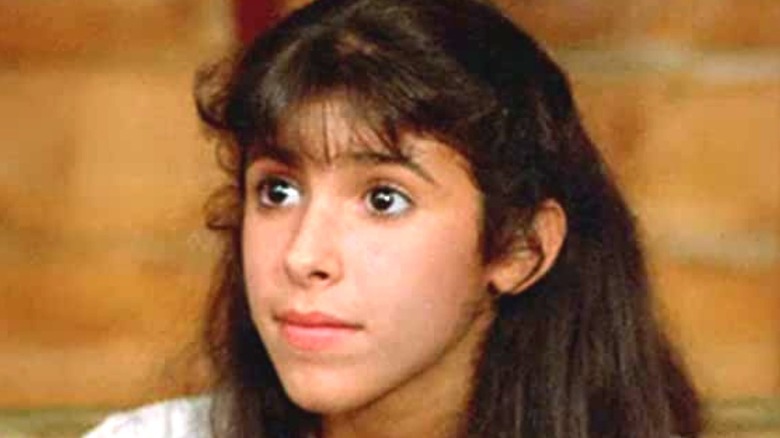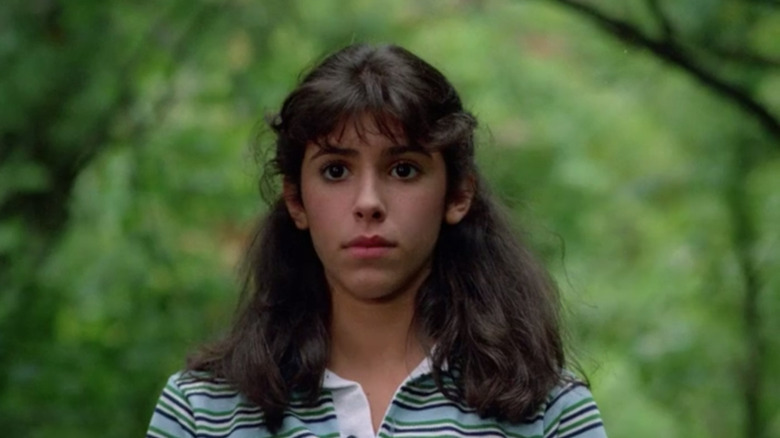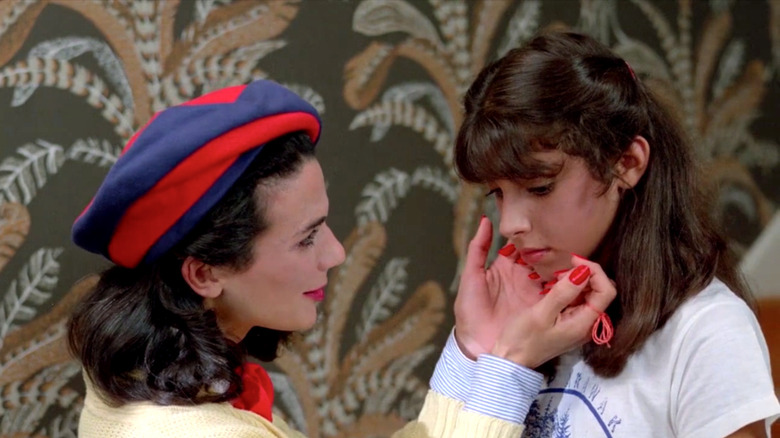The Ending Of Sleepaway Camp Explained
Even if you've never seen the 1983 slasher film "Sleepaway Camp," you've probably heard something about its ending. Maybe just that it's shocking or that, to many people nowadays, it comes off as offensive. Long before M. Night Shyamalan started making movies, "Sleepaway Camp" was a film with a shocking twist ending that must be seen to be believed. And although that scene has aged terribly, that doesn't stop people from talking about it (albeit less positively than some once did). The climactic twist was even reenacted in censored stop-motion form on the Adult Swim show "Robot Chicken" back in the early 2000s.
But even if you saw that sketch, or otherwise heard spoilers for the ending of "Sleepaway Camp," there's a good chance you don't understand its actual context within the movie. So let's take a few minutes and look at this very problematic piece of B-movie history, and how the story set up such a weird and troubling final scene.
Angela's not like other girls
The central character of the movie is Angela (Felissa Rose). The movie begins with young Angela and her brother Peter on a small sailboat with their dad, while his male partner watches from the shore. A speedboat driven by irresponsible teens crashes into the family, leading to screaming and blood in the water. From there, the film cuts to eight years later, when a teenage Angela and her cousin Ricky (Jonathan Tiersten) are about to leave for summer camp. It seems that after the death of her family, Angela has been raised by her Aunt Martha (Desiree Gould), who comes off as more than a little strange, but seems to dote on her.
Angela is extremely quiet and inexpressive, apparently still traumatized by what happened in her childhood. Although Ricky does his best to protect her, Angela is bullied at camp, both for her unusual demeanor and the fact that her body isn't developing like the other teenage girls. Those who are particularly mean toward her — or invade her personal space — keep turning up dead in a series of mysterious violent attacks. A boy named Paul (Christopher Collet) takes an interest in Angela and even kisses her, but at the end of the film, she beheads him, revealing herself as the person behind all the killings. In that final scene, she appears naked and is revealed to have a penis — not Felissa Rose's body, to be clear, but a special effect involving a male stand-in.
It's all Aunt Martha's fault
A flashback reveals that it was actually Angela who died alongside their father eight years earlier, and not Peter. Peter was taken in by Aunt Martha, but because she already had a son and had always wanted a daughter, she decided to raise Peter as a girl and renamed him Angela. That, according to the movie, is why Angela seems so traumatized, and why she eventually became twisted enough to kill a bunch of people. Of course, that's why the film is considered problematic today. Angela isn't really transgender in any conventional sense (trans people choose to express their real genders, while Angela was forced into hers by her aunt), but the movie falls into that old trope of conflating gender-nonconforming people with mental illness and murder, similar to other films like "Dressed To Kill" and "Silence of the Lambs." As if that wasn't bad enough, the movie also implies that Peter was already sexually confused even before he became Angela, simply because his dad was gay.
There is still some campy fun to be had in "Sleepaway Camp," but many modern viewers will find its sexual politics distracting at best, and unwatchable at worst. And if you're one of those people who would rather not watch it, at least now you know where that bananas ending came from.


